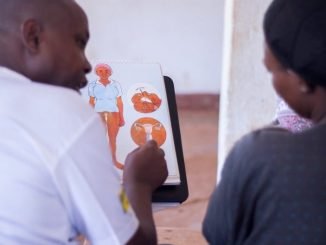
Kampala, Uganda | URN | The Ministry of Health is drafting a policy that will require couples to compulsorily screen for sickle cell before getting married.
Charles Kiyaga, the Director of the sickle cell program at the ministry revealed this on Thursday 23, June 2022 at a convention attended by policymakers, scientists, and NGOs doing advocacy related to the disease.
Kiyaga who dismisses concerns by activists that this could fuel stigma making it hard for those with a trait and those living with sickle cell from finding marriage partners, says there will not be punitive measures for those that insist on getting married irrespective of their status.
This policy comes when the burden of the sickle cell stands at 15 per cent prevalence for those with a trait and 1.2 per cent for those with the disease. This is from data collected in 2014, but recently, the ministry started routine surveillance in high-burden areas of Acholi, Lango, Teso, Buganda, and Busoga where the prevalence is higher.
Dr. Deogratius Munube, a consultant pediatrician working at the Mulago Hospital Sickle Cell Clinic says requiring people to screen will go a long way in cutting prevalence quoting evidence from countries that have put in place legislation. He cites countries, especially in the Middle East where the prevalence has reduced.
Dr. Munube says the advantage of screening is that it will help couples make an informed decision of whether to endure the risk of having a child with sickle cell or not.
Read Also: Ugandans would face fines, jail for refusing COVID-19 jab under new law
While the idea of mandatory testing is a welcome move, Isaac Okello, the founder of Raising Hope International Friends (RHIF), an organization that does awareness for sickle cell disease said as the government pushes for this, there should be an equal increase in facilities that can test considering that free screening is commonly done during events or medical camps.
In many places, test fees range from 70,000 to 150,000 Shillings which is quite unaffordable to many Ugandans.
Dr. Munube who has specialized in treating blood-related disorders, says that although there are a lot of innovations in care that can enable them to live normal lives with hydroxyurea drugs becoming more accessible and bone marrow transplants for those that can afford, up to 80 percent of the about 25,000 children born with the disorder annually still succumb before their fifth birthday.



